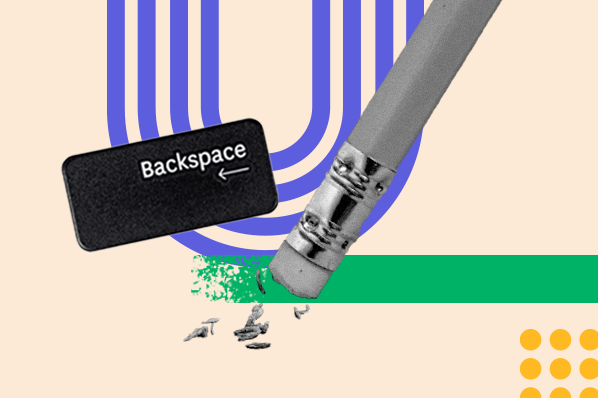Welcome to "The Pipeline" — a weekly column from HubSpot, featuring actionable advice and insight from real sales leaders

Regardless of how you feel about its ethics or long-term ramifications, artificial intelligence's influence is becoming an inescapable reality in almost every field — and sales is no exception
AI is poised to fundamentally alter key elements of sales as a practice, and sales professionals need to account for those shifts. So if you want to thrive in the ever-changing, AI-influenced sales landscape, you're going to exhibit some key traits and abilities.
To help you out, I‘ve put together a list of five of those crucial qualities with some context about the "why" and "how" behind each one. Let’s take a look.
5 Key Qualities Salespeople Need as AI Changes the Sales Landscape
1. The Presence of Mind to Stay on Top of Emerging AI Resources
AI can shape smoother, more efficient sales efforts on a day-to-day basis — and salespeople will need to accept and adapt to that. For instance, certain AI programs can help streamline mundane administrative activities, like updating CRM data and responding to proposal requests.
But its influence isn't limited to individual reps — AI's progress is also going to lead to the creation and adoption of more sophisticated resources for broader sales teams, like improved conversation intelligence software and more refined forecasting solutions.
Long story short, salespeople are going to have access to an increasingly robust and refined field of AI-related resources — and if you want to be as successful as possible, you need to remain mindful of innovation as it comes.
Stay on top of those emerging solutions and how you can leverage them to your advantage — and be willing and prepared to figure out newer ones as they gain steam.
2. The Ability to Retain the Human Element of Sales
Though AI is going to fundamentally shape the future of sales, salespeople need to avoid "leaning into" it too much. Sales is a fundamentally human practice, and sustained success in it will rest on your ability to understand and act on that.
In a lot of ways, sales is the process of developing trust on a dime, and that takes some degree of personalization and empathy — two things that AI can‘t totally replicate. While salespeople can use AI to aid their efforts, they shouldn’t bank on using it to dictate them.
For example, you can use generative AI to structure your sales emails — but you still need to take the time to ensure that your communication with prospects and customers is personalized, thoughtful, and sound.
Your job is to act as a reliable, authoritative, consultative resource for your prospects — and that will always require a human touch.
3. The Willingness to Use the Increasingly Sophisticated Tools in Their Tech Stack
This point is kind of similar to point number one. You, as a sales professional, should be willing to learn and leverage the tech your sales org provides you with. Being too stubborn or unaware to adopt the solutions at your disposal can undermine your efficiency and potentially keep you off the same page as the rest of your team.
Actions like reviewing calls from your AI-backed conversation intelligence software or leveraging AI to log data that can inform more accurate forecasting can allow for both improved personal efficiency and broader team cohesion.
It's easy to get stuck in your ways and not embrace the tech your org offers you, but understand this: Your company invested in those solutions for a reason.
Be willing to at least try to fold the new resources your org offers you into efforts. Given how sophisticated sales tech is nowadays, those products have tremendous potential to make your sales efforts more effective.
4. The Readiness to Brace for the Best-Informed Buyers Ever
Even in the days just before generative AI came into the picture, buyers were coming into sales engagements armed with extensive product knowledge. Now that generative AI is emerging as a resource for research, salespeople might have to lean even harder into demonstrating how their solutions offer compelling benefits and outcomes.
Obviously, those elements have always been the basis for effective sales efforts — but generative AI allows for a degree of extensive, hyper-personalized research that can provide prospects with particularly refined product insight.
It can give them extremely deep, specific information — knowledge that conventional Google searches can't produce. It has the potential to inform more vivid understandings of what prospects are getting into, so casting equally vivid senses of what they can expect to gain as a result of leveraging your solution will be even more vital.
Going forward, there‘s a good chance you’ll be dealing with buyers who bring an extreme degree of personalized background on your offering — so be ready to give a particularly compelling "why" to guide that insight toward a deal.
5. The Ability to Understand and Remain Mindful of Generative AI's Flaws and Limitations
As refined and helpful as generative AI might be, it's far from flawless — you can’t bank on the information and insight it produces to be accurate without question. Programs like ChatGTP don't always offer sound answers.
Approaching AI in sales critically and carefully is going to be central to leveraging the tech as effectively as possible. If you‘re using a resource like ChatGPT, make sure you’re structuring well-constructed prompts and asking successive questions to produce specific, accurate answers.
Don‘t take everything it tells you at face value. If it produces something questionable or asking the same question twice generates two different answers, make sure you account for those gaps.
Again, AI is most effective in sales when it’s treated like an aid as opposed to a bonafide replacement for key human elements of the practice. Use it as a tool — not a crutch.
Don't get too comfortable.
AI is shaping several fundamental elements of sales as a practice — for better or worse. Its ever-growing influence is going to make for a mix of convenience and complications. For every day-to-day activity AI streamlines, it's going to pose a new challenge that salespeople are going to have to account for.
If there‘s any central thread to every point on this list, it’s this: Be ready to adapt. The sales landscape is changing as rapidly and radically as it ever has — and the worst thing you can be is stagnant.
![Download Now: The State of AI in Sales [2023 Report]](https://no-cache.hubspot.com/cta/default/53/6f674af4-3116-43b0-8a54-4a64f926afb6.png)




![Will AI Steal Your Sales Job? We Asked HubSpot Experts [+ Research]](https://blog.hubspot.com/hubfs/AI%20steal%20jobs%20FI.png)

![The Benefits of AI Cold Calling [+Tips and Best Practices]](https://blog.hubspot.com/hubfs/ai-cold-calling.webp)
![How to Understand Your Prospects Better With AI [Expert Insights]](https://blog.hubspot.com/hubfs/AI%20Understanding%20Prospects.png)


